Music Knows No Borders
Argentina got soul, Equador goes cosmic, Ukraine gets classical in the UK, Germany, Belgium & England unite under the Finnish flag and Sweden provides some deep, sayin' something jazz.
I’ve said this before but I’m definitely getting the sense that there are less and less great albums being produced these days. It could well be that I’m getting pickier or heard much of it before, that artists have less to say/rail against, or perhaps I’m just disconnecting from modern music as the generation gap(s) widens, despite making an effort to keep tabs on what’s squeaking out of Generation Y and Z, and god help me, Generation Alpha’s phone speakers.
It certainly doesn’t help that the modern music landscape demands regular releases from artists. Spotify CEO Daniel Ek famously described his platform’s musical treasures as “content”, and with many artists increasingly attempting to feed not only streaming platform algorithms but also pressured by social media demands into adopting a production line approach, and few having the time or resources to even consider consistently great singles let alone a great album, he might even have point. Not that most artists even seem that worried as long as there’s a few singles every year that they can shout about and then cobble together into an LP, even though the album isn’t a concept, much of an artistic statement or even vaguely cohesive a lot of the time
Is this just me or is anyone else getting a similar sense? Is it worth worrying about or should we just go with the flow and get used to cherry picking tracks and sequencing them into personalised playlists, or mixtapes - if you want to romanticise the process. Or should we start a petition to Make Albums Great Again? We could at least sell some merch. Let me know in the comments.
The long shot of all this is that, in what should be a peak release period, I only have two albums, one of which is pretty short, and three EPs for you this week, although luckily they’re all great. So as always I urge you to check out the TSMM playlists/mixtapes. There are twenty one varied, regularly updated selections each containing fifty tracks, and they’re all great snapshots of fresh, alternative music and independent artists in their respective genres.
Vinocio - Tostados (Self Release)
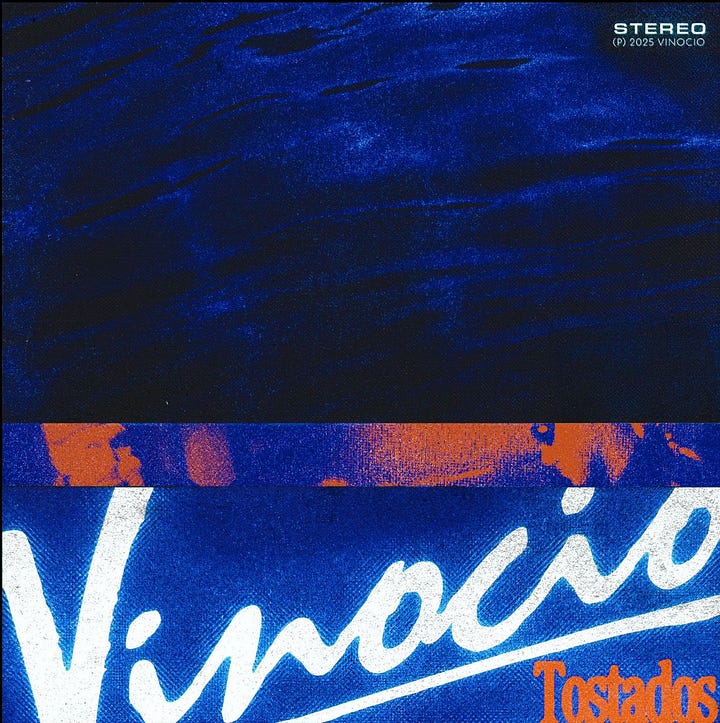

Out of the blue this week Vinocio landed on my radar. Well not quite out of the blue. As I was struggling for releases to recommend, I decided for the first time in years to scope out Gilles Peterson’s latest radio 6 show tracklist for new artists that I didn’t recognise, and there they were. If only I had time to actually listen to his shows again. Alongside John Peel, whose selections warped my fragile teenage mind so much I’d never listen to commercial music again, and Charlie Gillett my world music mentor, Peterson was such an influential DJ in the 90s and 00s for me and it’s great to see him still in the game and as enthusiastic as ever. Check him out if you want some jazz rooted eclecticism old and new.
So over to Argentina, a country whose musical output, apart from tango, tends to get ignored by many, and which has never been of much interest to soul jazz and disco lovers. Whether that’s a failure of creativity, international marketing or just the language barrier who knows? Well say ‘hola’ to Vinocio - multi-instrumentalists Lucio Memi and Fermín Carpena, plus a revolving cast of musicians that help out in the studio and at gigs, who are serving up classic sounding soul, jazz, funk, fusion and boogie vibes to the Buenos Aries soul crew, and now further afield.
The new LP, apart from the disco dancing “Cash”, drops the dance floor designs for a lovely warm Sunday morning vibe, even daring to venture north of the border on “Favela“ to pay respects to the care free bossa sounds of their neighbours. Opening with a short boogie intro the LP really gets cooking with “Tostados” the sort of slow, soulful, jazz tickled groove that should be the first track on any respectable late night smooching playlist. “Risah” heads into nu-soul territory with the vibes, rhodes, drums, bass and sweet vocals of Chiljud in sweet harmony. And so we continue, with the cosmic folk of “Cabo” and the easy bumping, vocoder reviving “Colibri”, before fading out with the minimal, aptly named “Lento“. The LP is a summer soundtrack if ever there was one.
Joaquín Cornejo - Cabuya (Shika Shika)
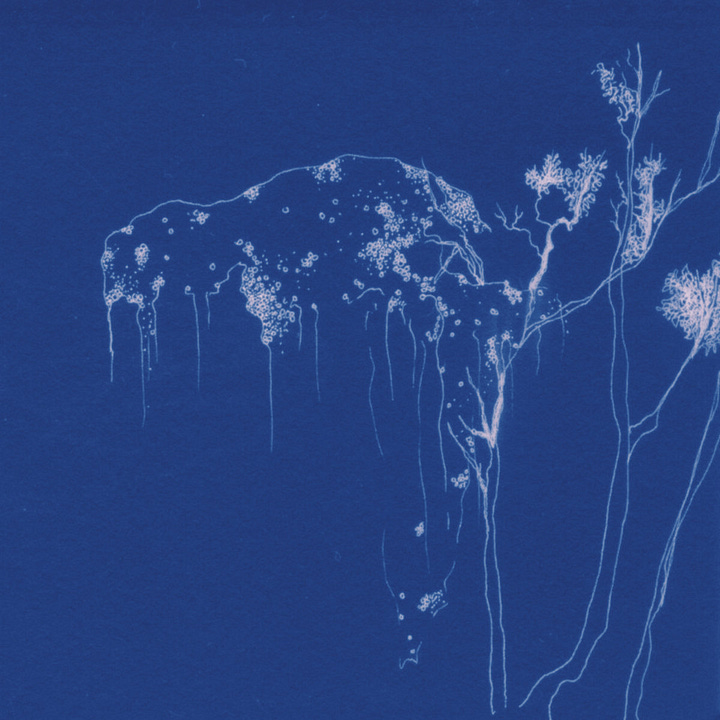
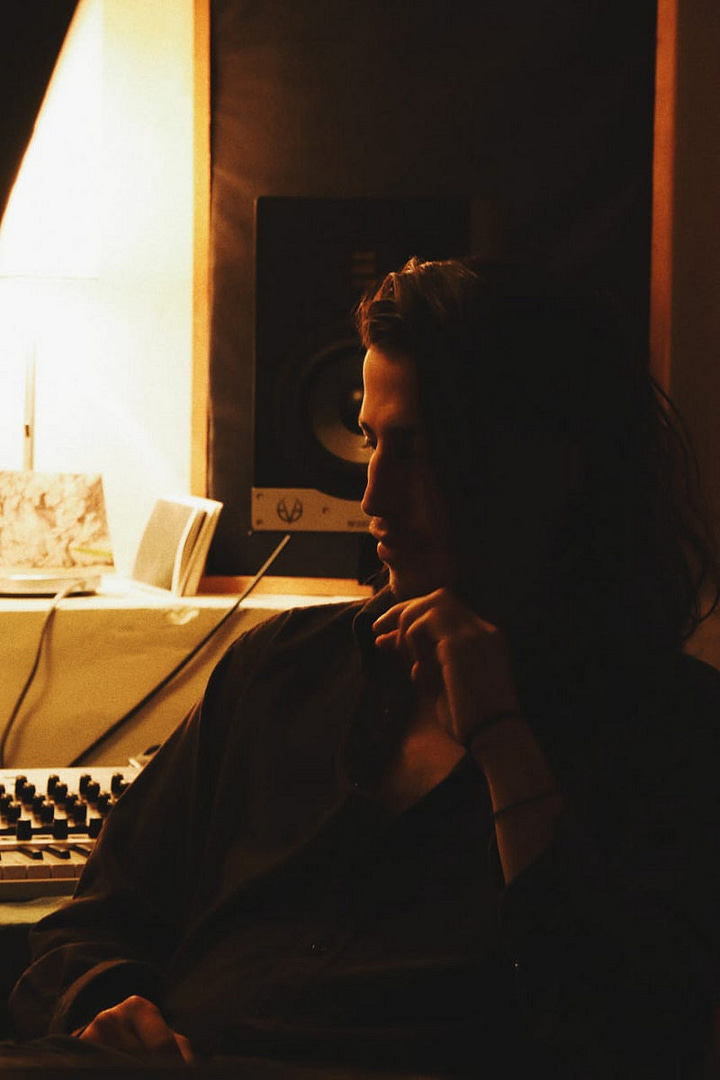
Joaquin Cornejo has TSMM form, his Vision Versions dubification of Markandeya being a particular favourite, but as well as reggae credentials he’s also got a fondness for fusing pan-Latin sounds with star gazing electronica, and for this new LP on the reliable Shika Shika label he’s marshalled quite the ensemble, made them some sandwiches and packed them off on a cosmic cruise.
The low gravity “Rios Voladores“ sees him supplying far out synths as well as picking up his acoustic guitar to lay down a harp like motif for the sweet, spirit world vocals of “Mowes“ to haunt. If the family name is anything to go by his brother pops in from his bedroom to lay down the bass to accompany the distant percussion and fauna that inhabit “Pedalai”, as Cornejo conjures a piano meditation that floats through the speakers and hangs in the air for you to contemplate.
“Tulsi” lulls you into a sense of becalmed spiritual jazz security before some skittering beats try to catapult the tune onto the dance floor but are restrained by the ethereal vocals and ambient designs of the rest of the musicians, this is music for the hips and/or the head. His dub chops get an airing on “Cabuya”, its rather awkward riddim diverted through a smokey echo chamber. “Nai” is something of a cutting room floor interlude albeit with a pleasant vibe, before he departs this sonic chapter and quite possibly the planet with “Wei“, the perfect cosmic outro to a great EP.
Natalia Tsupryk & Neil Cowley - There Was A Field (Manners McDade)
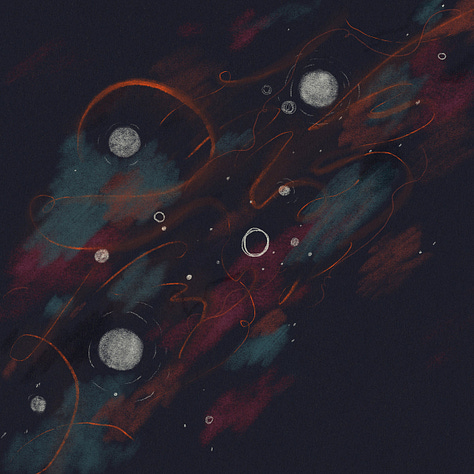

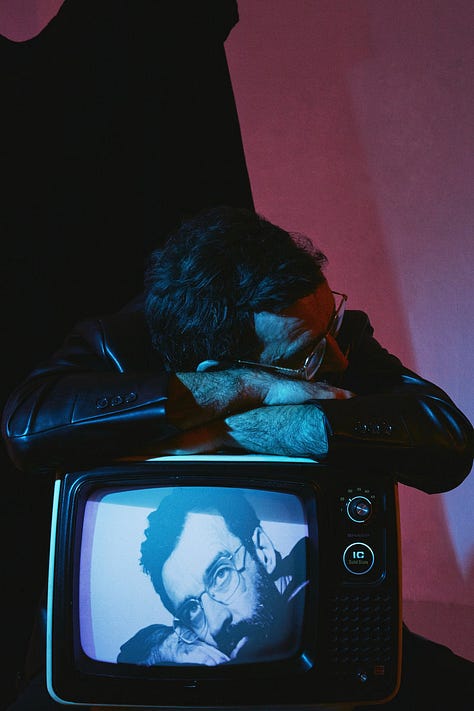
Natalia Tsupryk is a restless Ukrainian composer, violinist and vocalist, who dabbles with folk, electronica, and neoclassicism, so it’s apt that she’s teamed up with Neil Cowley, whose jazzy trio work came to my attention years ago, but who in recent times has become more eclectic, taking his piano in all sort of genre ambiguous directions. Although details are sparse this recording is billed as “music created without editing, discussion, or hesitation.“
Cowley gets the ball rolling on “Tear” with some minimal, somehow distant keys that set a melancholic tone for the prompt arrival of Tsupryk’s achingly beautiful violin lament, quite possibly for her war torn home the sorrow is so palpable, before Cowley puts his arm around her with more hopeful sounding keys. Traditional classical is then thrown out the studio window with the arrival of “Like This One”, where otherworldly effects and loop pedals infiltrate the studio, the succinct piano echoing around the room and a sampled, insistent violin motif cutting through the ambient abstractions.
Pleasing experimentation out of their system they return to more recognisable classical forms with “There Was A Field”, Cowley coaxing maximum emotion from very few notes, content for Tsupryk to journey down memory lane, possibly to a favourite childhood spot with her time warping string work.
The piano microphone is inched forward for the EP outro; hammers, strings and creaks artfully captured as Cowley, eyes closed I imagine, again sets the tone with introspection encouraging minimalism, Tsupryk in turn responding from her deep emotional well with some beguiling folkloric ambiguity and a seeming desire for simpler, more peaceful times.
It’s a wonderful, albeit far too short EP. Let’s hope it’s not the last.
Bruno Pronsato, Roméo Poirier, Memotone - Toinen Kaupunki (Sahko)
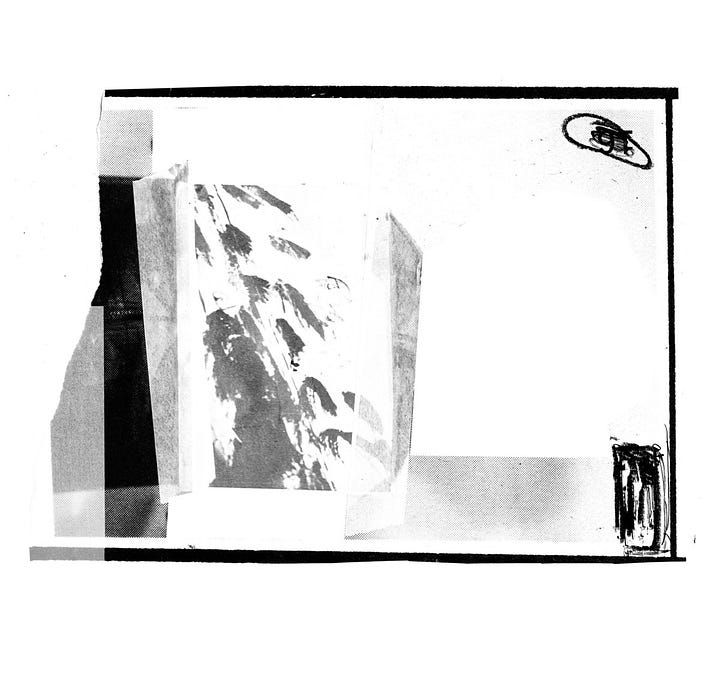
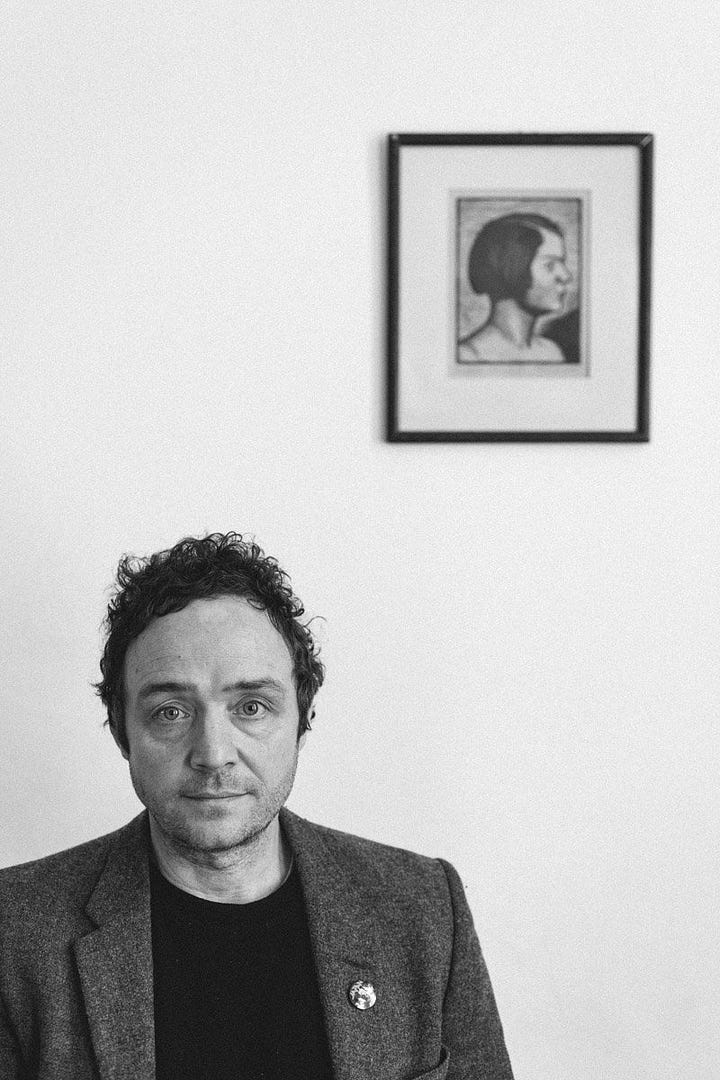
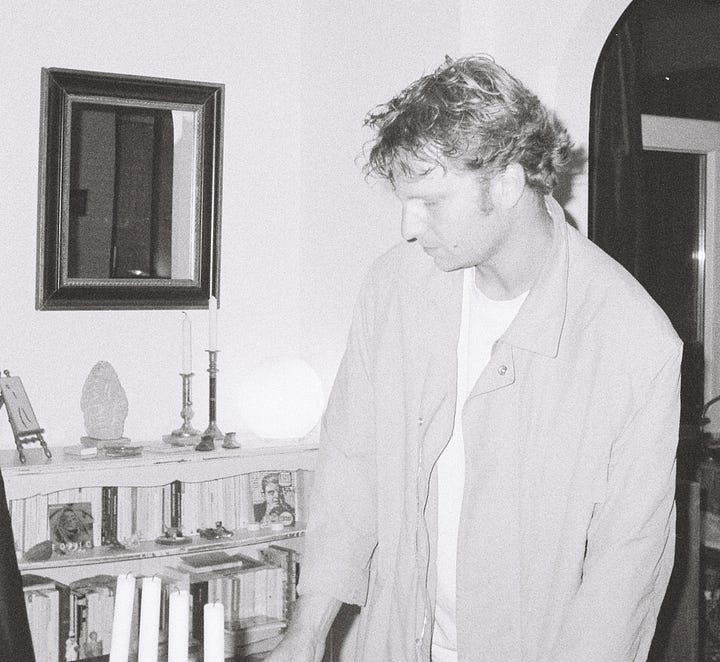

Helsinki’s Sahko Recordings deserve a long service achievement award for outsider electronica over the decades and you have to admire their continued vision in getting these three boundary nudging artists to align.
Bruno Pronsato started life as a rock drummer before heading into electronic realms to produce lush, leftfield techno and minimal house; more recently dabbling in less club focussed genre cross-pollination. Oddly enough Roméo Poirier also started life as a percussionist before taking the electronic route to creative fulfilment by exploring lower lit, partly submerged electroacoustic realms that defy easy description but which have a unifying warmth. Finally Memotone is a self-taught multi-instrumentalist and producer that roves about minimal, ambient, improvisatory and contemporary classical realms with a fondness for listenable waywardness. They’re quite the trio.
Poirier gets the ball rolling with a recently extended version of “Thalassocratie”, a track from his excellent 2020 album Hotel Nota. Retaining the liquid percussion and late night ambience he goes to work on the already effected trumpet, dialling down its abstract nature even further by stretching it close to breaking point and teasing the listener with an extra two minutes of mind expanding ambient jazz not jazz not anything really.
Pronsato also takes an opening track from a past album and extends it by an extra eight minutes no less; extending the hip hop beats, spoken words, modular tones and cinematic noir atmospherics, eventually taking the track into more expansive percussive and psychoactive territory. It’s a hypnotic gem that really sucks you in and leaves you blinking in the cold light of reality once it stops.
Not to be outdone, Memotone steps up the plate with the jazziest not jazz cut on the LP, his horn preferring a gentle swirl as it rides what sounds like a campfire recording which gradually morphs into rhythmic electronica, the horn teasing more familiar forms as the track intensifies.
This EP is a trip, great work by everyone involved.
Cosmic Ear - Traces (We Jazz)
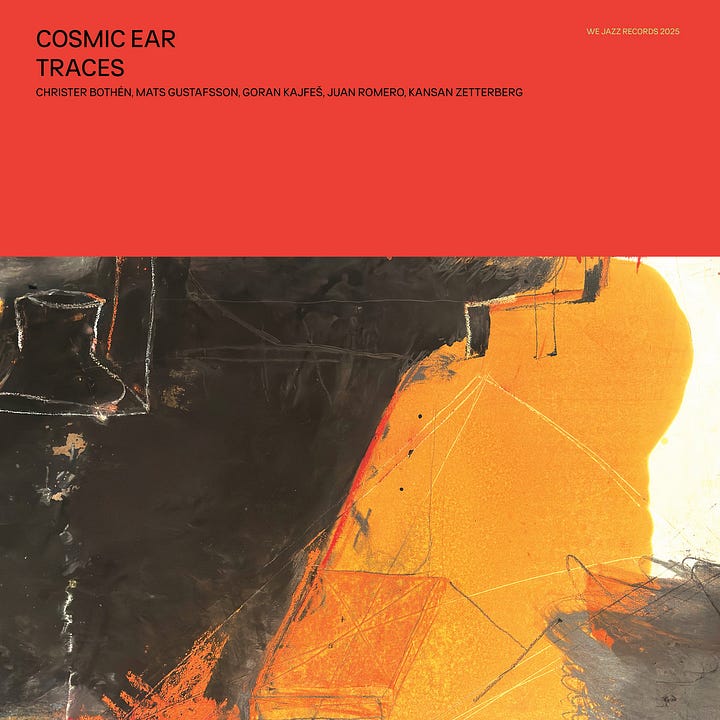
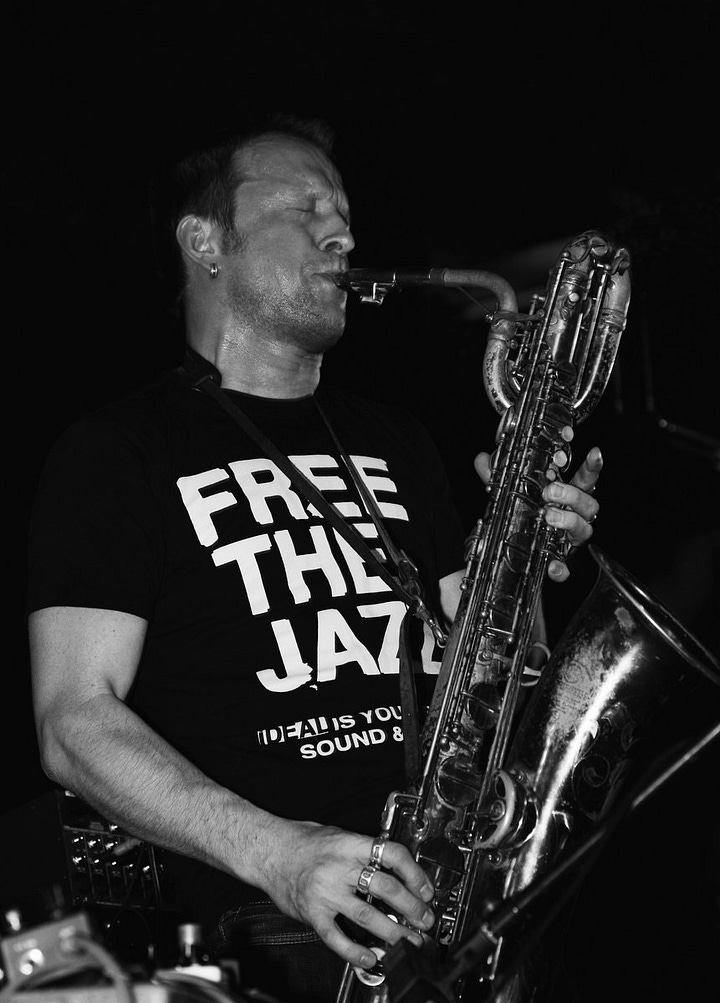
Modern jazz just isn’t saying it like it used to. Discuss. OK it’s unfair to compare a twentieth century golden age that expressed Afro-American oppression and pain with today’s relatively comfortable players who are saying what exactly, that it’s tricky to get a good latte at 7.30 in the morning? On the whole I’d prefer to dig out some vintage vinyl and hear the greats for a jazz fix, leaving the modern players to explore the new sounds and directions afforded to them in this golden age of fusion and technological democracy. Obviously there are exceptions, and this album is one of them. Being inspired by one of the greats - Don Cherry, the group certainly helped their cause by enlisting Christer Bothén, who played with Cherry during the 1970s when he was resident in Sweden, as a multi-instrumental medium - an inspired inclusion.
The group also adopt Cherry’s musical curiosity, with Juan Romero supplying congas, berimbau as well as regular percussion, and guest Marianne N´Lemwo introducing me, and many others I’m sure, to the karignan. The LP opener, “Father and Son” sets an uncompromising tone for the LP, Zetterberg’s stand up bass telling southern hemisphere tales and urging the horns to look for higher ground. The percussion weaves its hand made threads through the low frequencies to lock in a deep, insistent groove over which Mats Gustafsson’s sax searches and screeches, determined to get the answers he needs. “TRACES of Brown Rice” starts curiously with effected percussion anchoring ambient electronics and minimalism, before berimbau and wind instruments forge new directions in textural, electroacoustic spiritualism that is fit for today’s screen gazers.
“Love Train” takes a trip over to the West Coast to vibe with the still resonating spiritual jazz frequencies and counter the oddly nagging piano refrain, before Gustafsson again steps up to the plate and blows away his pain, and boy he hurts. “Right Here Right Now“ is a deeply hypnotic rhythmic showcase, strings and percussion aligning to mesmerise as well as move you, the horns relegated to a supporting role over the ritualistic, nine minute course.
“Do It (Again)” pays homage to Sofia Jernberg, the Ethiopian born Swede and lauded experimental vocalist, the quintet deeming a more minimal meditation will do her the most justice. The LP closer, “TRACES of Codona and Mali“, name checks Cherry’s free jazz and global fusion outfit from the late 70s and early 80s; the berimbau and exotic percussion tagging the thoughtful horns, that in turn invite the bass and further percussion to ratchet up the rhythmic intensity ready for their forceful farewell.
Jazz fans get straight over to this album, it’s like the good old, bad old days all over again.
Blog Track of the Week
“Teasley creates a compelling percussive skeleton for Ballou to weave his horn through, and immediately sets a spiritual tone for the trumpet to follow, Ballou willingly accepting the challenge to transcend this mortal coil with searching, contemplative horn lines that pierce unseen boundaries to neighbouring dimensions. Lest he become lost exploring new realms the percussion sends out regular hand played pan pulses and lays a skittering trail of exotic higher frequencies with occasionally cosmic hats, rolls and snares that are textural rather than propulsive. With both percussion and horn set to transcend, the only thing to do is go with the cosmic flow and contemplate that there just might be more out there, if only we look in the right places.“
Don’t Forget TSMM’s Playlists and Podcast.
From ambient sound baths and wellness imbuing new age vibes to underground house via jazz, neoclassical, folk, dub and more, the twenty one TSMM playlists and podcast cover a lot of ground, and are updated regularly.
They’re available on Tidal, Apple Music, Amazon, Youtube Music, Youtube, Deezer, Soundcloud and Spotify (if you don’t worry about them not paying most of the artists on the playlists).
Just hit this smartlink to connect to the various services and TSMM profiles.




I’ve started a campaign called Make Euan Great Again #MEGA…. But in all seriousness I think the art of the album is being lost and people consume music in a way that they just don’t care. I still care. Nothing is better than a perfectly crafted album. Jeff Tweedy covered Richard Dawson on his substack the other day. There’s two artists who produced perfect albums in YHF and Peasant. If I’m honest, I don’t think there are many albums that nail it from start to finish but at least there used to be time, thought and effort put into the construction of a records. Still matters to some of us. Anyway, rambling…
I'm pretty sure that most people, especially the under thirties, don't care much about albums anymore too, and that it's probably familiarity and memory lane keeping them alive in the older generation. Although there are some wonderful albums, so many in my vinyl collection are/were (I sold a lot of them) let down by a few tracks, so I'm actually a digital/streaming fan.
I thought more about this overnight and I'd actually expect the album to be more of a priority for the less single based, more alternative music that I listen to, but even in this realm I'm struggling much more than I did 7 years ago to find great LPs. There's definitely something going on, perhaps a collective artistic ADD caused by the constant screen staring and information consumption?
I'm going to start interviewing a few artists, perhaps I'll throw the question out there and see if I can get some clues as to what's happening.